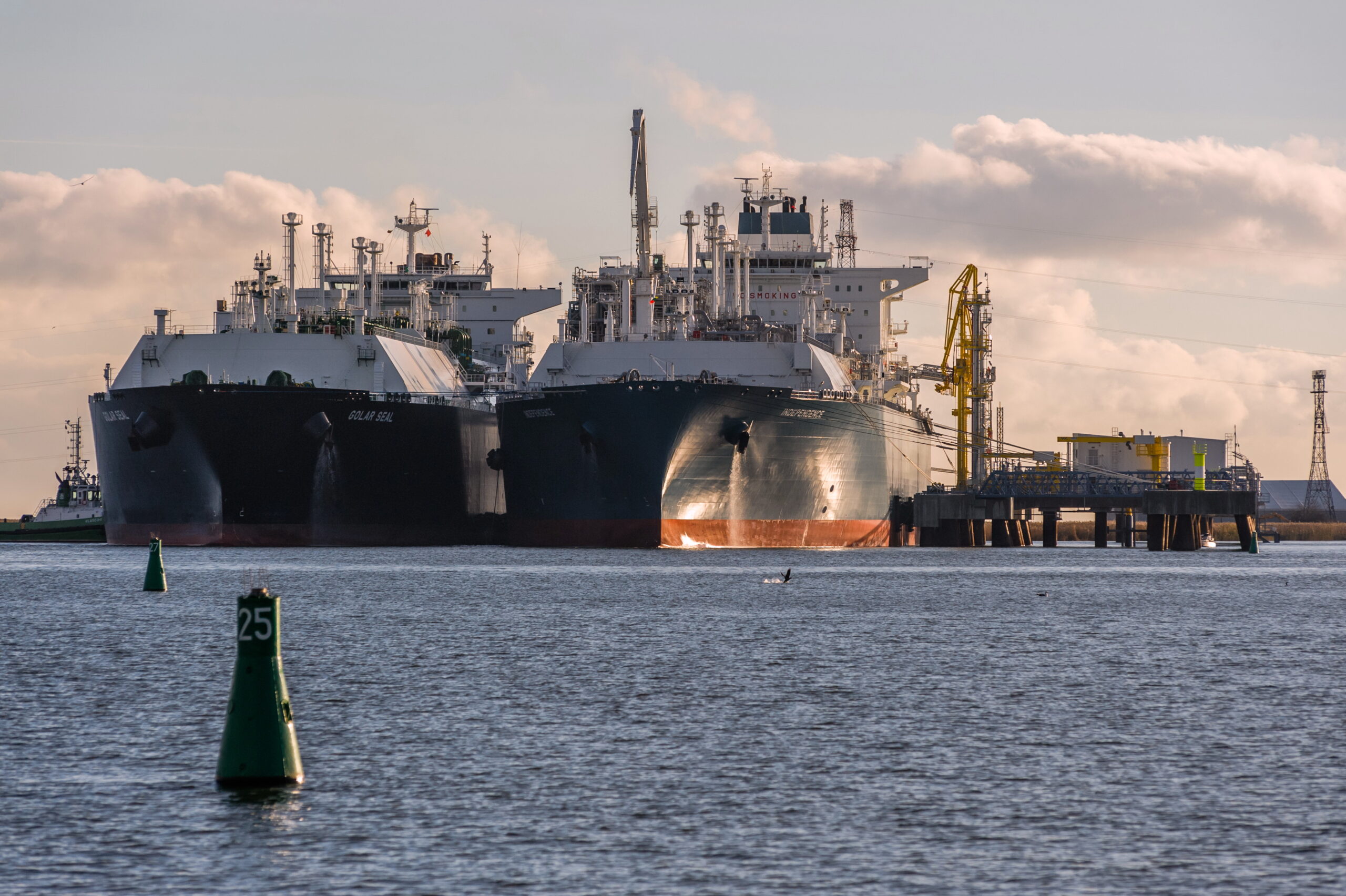A recent report claims that natural gas should be replaced with renewables and attacks the planned FSRU in the Gdańsk Bay, but Poland’s heating sector does need LNG. Nevertheless, the role of gas in the Polish economy should decline – writes Wojciech Jakóbik, editor-in-chief at BiznesAlert.pl.
- IEEFA forecasts that LNG demand in Europe will peak in 2025 and then decline steadily in the second half of the decade. The dropping gas consumption will be largely driven by money spent on improving the energy efficiency of buildings and the introduction of new green capacities.
- „Lower gas consumption raises further questions about plans to build new import infrastructure in Europe. In Poland, such infrastructure is to be the FSRU terminal in Gdańsk,” the report says.
- The heating industry, which is in the process of switching from coal to gas, will not be able to provide services without natural gas. The FSRU aims to ensure security of supply, among others, to new heating units.
- Perhaps, therefore, the way to reduce the role of gas in the Polish economy will be to support investments in individual, renewable sources of energy and heat, while leaving this fuel where it is indispensable, that is, in district heating.
Demand for natural gas in Europe was the lowest in 10 years last year, according to the Institute for Energy Economics and Financial Analysis (IEEFA). Demand for this raw material has fallen by 20 percent since Russia invaded Ukraine. The American think-tank analyzed the latest data. The largest drop in demand was recorded in Germany and Italy, with significant declines in the Netherlands, France and Spain.
In Poland, gas demand has fallen by 14 percent since 2021, while LNG imports have increased by nearly two-thirds, mainly from the United States and Qatar. IEEFA forecasts that LNG demand in Europe will peak in 2025 and then decline steadily in the second half of the decade. This lower gas consumption will be driven to a large extent by money spent on improving the energy efficiency of buildings and the introduction of new renewable energy capacities. „Lower gas consumption raises further questions about plans to build new import infrastructure in Europe. In Poland, such infrastructure is to be the FSRU terminal in Gdańsk,” the piece says.
„As for Poland, the local climate minister claims that the second FSRU unit is crucial for the country’s energy security, but the fact that the project was shelved in November due to lack of market interest says otherwise. Polish gas demand is falling and does not justify the construction of more import infrastructure,” says Ana Maria Jaller-Makarewicz, Lead Energy Analyst for IEEFA’s Europe team. In reality the second FSRU (aka FSRU2) that was supposed to dock in Gdańsk will not be leased as Poland’s neighbors are not interested in reexport. The capacity of the first FSRU has been already booked by PGNiG of the Orlen Group and a relevant environmental decision has already been made.
However, the role of gas in the Polish economy should decline, so in this respect the environmentalists are right. „Last year, gas consumption fell to the lowest level in a long time. The production of electricity from this fuel was the lowest in 5 years, and more electricity was generated by wind turbines. However, Poland seems to ignore this trend, investing in the construction of a gas terminal in Gdańsk and even ten large gas-fired power plant units,” points out Diana Maciąga from Polska Zielona Sieć. „This creates a vicious circle of increasing demand for fuel, which must be imported in growing quantities, which in turn is to justify the construction of terminals and gas pipelines. Let’s remember that we rely on fuel dependent on geopolitical crises and supplier decisions. This is a huge risk and, in practice, means putting energy security in the hands of foreign fuel companies,” she spells out.
The role of gas in the energy sector should be minimized, despite the advantages of high flexibility in the work of such units, which would serve to stabilize the supply of electricity from renewable sources. Poland should have as many renewable sources as possible, taking into account grid constraints. However, there are physical barriers. The heating industry, which is in the process of switching from coal to gas, will not be able to provide services without natural gas. The FSRU is intended to ensure security of supply, among other things, for new heating units. Meanwhile, it is not possible to replace large-scale district heating with renewable heat pumps. „In view of the expected increase in demand for natural gas resulting from the energy transition, especially in the heating sector, but also in some areas of the energy sector, the FSRU in the Gulf of Gdańsk is necessary to secure the required volumes of natural gas,” explains Tomasz Włodek, PhD., from the AGH University of Science and Technology „Moreover, relying largely on LNG supplies to meet Poland’s natural gas demand necessitates diversifying the sources. Therefore, the issue of the FSRU should not be questioned, this is a matter of energy security during the energy transition of our country,” the scientist explains.
Perhaps, therefore, the way to reduce the role of gas in the Polish economy will be to support investments in individual, renewable sources of energy and heat, while leaving this fuel where it is indispensable, that is, in district heating. It may happen that the energy transformation will occur more quickly, and FSRUs may prove unnecessary. Then another advantage of this solution will be revealed. Unlike a stationary terminal, a storage and regasification unit can be sent away and used at another port or as a gas carrier.









